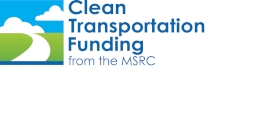This summer, the MSRC held Work Program development workshops in six cities throughout the four-county South Coast region to solicit clean transportation funding ideas from stakeholders. From June 18 through July 2, workshops were held at the Orange County Transportation Authority’s headquarters in Orange, the City Council chambers in Cathedral City, the offices of the Riverside County Transportation Commission in Riverside, the San Bernardino Associated Governments office in San Bernardino, the headquarters of the Los Angeles County Metropolitan Transportation Authority in downtown Los Angeles, and the Marvin Braude Constituent Service Center in Van Nuys. Concurrently with the workshop tour, the MSRC voted to embark on another two-year Work Program, so it was very exciting for participants to learn about the approximately $30 to $40 million dollars that would be available for investing in clean transportation projects.
Nearly 150 attendees participated in the workshops, with representatives from the public sector, private companies, academic institutions and non-profit organizations. Even some former MSRC members attended to share their past experiences on the Committee and provide insight to participants about how the MSRC could help with their clean transportation projects. About three-quarters of the participants were new to the MSRC workshop experience, while the rest had attended the last round of workshops in 2012 and returned to champion their support for existing MSRC programs and to offer ideas for new funding opportunities.
At each workshop, a member of the MSRC or MSRC Technical Advisory Committee attended to welcome the participants and offer their perspective about why the MSRC’s programs are so important to improving air quality in Southern California. A senior air quality manager from the South Coast Air Quality Management District also attended to provide an overview of Southern California’s successes in improving air quality over the past two decades while presenting the significant air quality challenges that remain. Additionally, an MSRC staff member was on-hand to answer questions about the MSRC’s programs and processes.
Support for many existing MSRC programs remained high, and numerous participants presented innovative new ideas and collaborations for the MSRC to consider. The new ideas presented for program funding were as diverse as the workshop attendees themselves and ranged from new technology and transportation demand management endeavors to expanded outreach and education efforts. Stakeholders also provided feedback about the Work Program process itself and offered a few suggestions about how the MSRC could improve the solicitation and communication process with applicants and grantees. A detailed summary and analysis documenting all of the workshop comments and written submissions was prepared for the MSRC members to consider as they prepare to craft the next two-year work program.
“We were very pleased to have so many clean air stakeholders join us for these workshops to hear their ideas about what projects would make a big impact in their communities,” said MSRC Chair Greg Pettis. “I look forward to discussing these innovative ideas with my colleagues to develop a work program that will deliver air quality improvements for us all.”
The first round of solicitations for the new Work Program is expected to be released in early 2015. Be sure to sign up on the MSRC’s website to get the latest news about the Work Program and to be notified when solicitations are released at www.CleanTransportationFunding.org.
